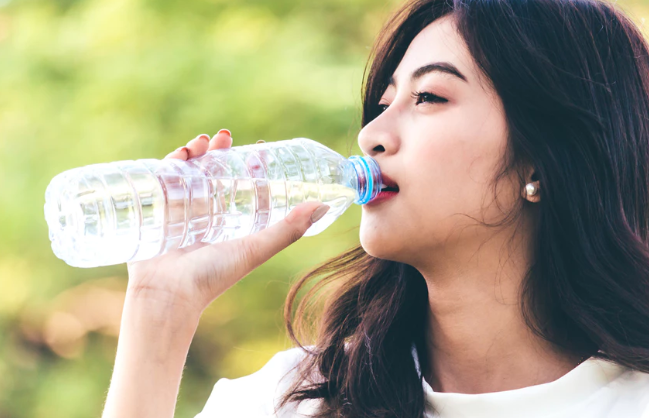It is pretty common to feel thirsty, but it is not normal when you are always feeling thirsty even after drinking a lot of water. Here is some possible reason why you might be felling excessive thirst and why you should not overlook this fact.

There is a lot of reason why you might be felling excessive thirst. Some of the most common reasons are as follows:
- You might have sweat a lot during your workout
- You have gone through diarrhea and sickness
- You are not consuming enough fluids
- You are consuming too much caffeine or alcohol
- You eat too much spicy and salty food
- During pregnancy, you might feel excessive thirst
- In the temperature over 38 Degrees, it is common to feel thirsty
Table of Contents
Some common reasons for excessive thirst are:
Dehydration
You might have already heard of the term dehydration, dehydration means your body does not have enough fluid to perform its normal tasks, and thirst is the primary symptom of dehydration. Dehydration can happen for many different reasons, such as diarrhea, exercise, vomiting, and too much sweating
Other symptoms that indicate dehydration are:
- Dark-hued urine
- Not going to urinate that much
- Dry skin and mouth
- Feeling lightheaded or tired all the time
- Slight headache all the time
Symptoms of Dehydration on Infants:
- No or fewer tears when they cry
- Sticky and dry mouth
- Have fewer wet diapers or go to the bathroom less frequently
- Be sluggish or irritable
Diabetes
A thirst that is pretty much impossible to satisfy is also called polydipsia, which is a symptom of diabetes. When you are going through this health issue, your body stops producing hormone insulin naturally or does not utilize it properly, which results in too much sugar built up in your body? You can apply for healthcare jobs to get to know about this field.
Glucose in your urine gathers more water that made you pee more often. Those made your body replace the lost fluids.
Along with excessive thirst, other symptoms that you might experience are:
- Problem in vision
- Constantly feeling exhausted
- Constant hunger
- Bruises and cuts that are not healing quickly
How to diagnose and treat excessive thirst
Your doctor will ask for your complete medical history in order to find out the reason for your excessive thirst. Be prepared to tell them everything they need to know to find a cure for your excessive thirst.
Some common questions that your doctor might ask are as follows:
- Since when did you start noticing these symptoms?
- Are you urinating more than before?
- Did the symptoms appear gradually or suddenly?
- Do you constantly feel thirst or does it increase or decrease at a certain time of the day
- Have you recently made a change in your diet and lifestyle?
- Have you also noticed any changes in your appetite?
- Have you lost or gained weight?
- Have you experienced a burn or injury recently?
- Are you also experiencing swelling or bleeding?
- Have you had a fever?
- Have you experienced heavy sweating recently?
Your doctor might also ask for urine and blood tests to perfectly diagnose the cause of your problem. These tests include:
- Blood glucose test
- Blood differential and blood count tests
- Urine osmolality, urinalysis, and urine electrolyte tests
- Serum osmolality and serum electrolyte tests
Depending on the result of the overall diagnoses, your doctor will provide you with needed medications etc.
Aside from medication, you can also resort to different food items to quench your thirst and fulfill your body’s fluids needs. Some food items that can help you throughout your excessive thirst problem are Watermelons, Cucumbers, Bananas, Strawberries, and Milk.